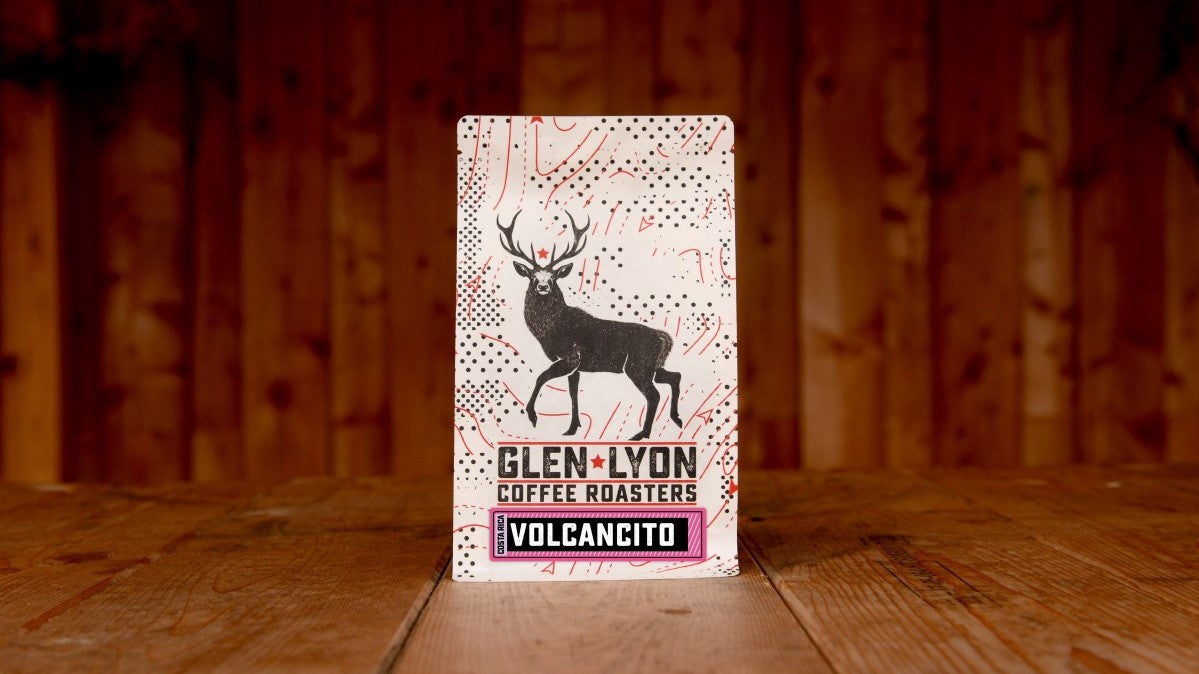Sweet, balanced, and wonderfully drinkable: it’s the Costa Rica Volcancito. This is the second year we’ve bought from Alejo Castro Kahle (you might remember the fruity natural Volcan Azul which we’re going to bring back very soon). Volcancito is an estate blend, which means it’s made up of coffees harvested from all three of Alejo’s farms, and its balance and subtle brightness makes it a great option for a morning pour over or filter.
Costa Rica is a world leader in sustainability and conservancy. The country produces nearly all of its electricity from renewable sources, and almost a third of its land is protected.
Coffee plays a major role in the country’s sustainability movement. As a research paper in 2019 put it, “It’s impossible to tell the story of modern conservation without coffee and Costa Rica.” And as coffee continues to be threatened by climate change, the country’s leading role is becoming ever more important. Despite being relatively tiny in comparison, Costa Rica is home to more plant and animal species than the United States and Canada combined.
Since the 1990s farmers have been incentivised to cordon off part of their land for conservation, and such biodiverse areas have shown themselves to be beneficial both for the environment and for the farmer themselves. One small example: more trees mean more birds, and many birds are useful pest control operatives on coffee farms as they like to eat the coffee berry borer beetle.
Alejo’s family has been conserving land since before he was born, mainly around their farms but his father has also bought additional land solely for conservation. He specifically looked to protect land in the Osa Peninsula, which has been called “the most biologically intense place on earth” by National Geographic.
“We’re really proud of this conservation area,” Alejo told us last year. “We have over 1500 hectares in that region. My father started in the 1980s before global warming was a trending topic.”
Alejo and his team are laser-focused on quality and consistency, which means extra care is taken in the preparation of all their coffees. This extends to their sustainability measures: the farms don’t use insecticides, instead relying on complementary planting and even utilising bees (from which they also gather honey). Alejo’s work has been rewarded by the prestigious Cup of Excellence competition with multiple wins, awards, and certificates of recognition.
Volcancito is made up of beans of the caturra variety harvested from all three of Alejo’s farms. Caturra is a popular variety in Central America, noted for its small size and high yield, and it thrives at the high altitudes where Alejo’s farms sit. The intensification of coffee farming in Latin America in the second half of the 20th century was in no small part down to the caturra variety. Its small size allowed it to be planted in higher densities, often in full sun, and today it is considered one of the most economically important coffee varieties in Central America.
We hope you enjoy this delicious daily drinker, and we’re looking forward to bringing you more coffees from Alejo’s farms in the future.

